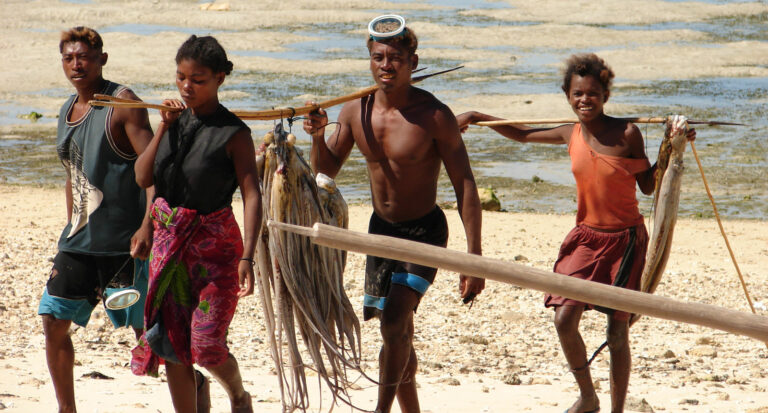The results, reported in the journal PLOS ONE, point to a revolution in the management of marine protected areas, with almost half of the sites – more than 11,000 km² – in the region now under local community stewardship.
Marine protected areas (MPAs) are zones of the seas and coasts designed to protect wildlife from damage and disturbance and typically managed by governments rather than by local communities. They are rapidly increasing in number as countries rush to meet international conservation commitments.
Lead author Steve Rocliffe, a PhD researcher with York University’s Environment Department, said: “MPAs are vital tools for marine conservation but often fall short of their potential and can have negative impacts on local fishing communities.
“Our results show that dissatisfaction with these ‘top-down’ approaches is leading coastal communities across a vast swathe of the Indian Ocean to take more responsibility for their resources by setting up conservation zones known as ‘locally managed marine areas’ or LMMAs.
“LMMAs put people at the centre: it’s the fishers themselves who are making the management decisions, based on their needs, their priorities, and their traditional ecological knowledge.”
The researchers assessed LMMAs in terms of geography, numbers, size and governance structures, comparing them to areas under government stewardship and evaluating their potential contributions towards Convention on Biodiversity targets to effectively conserve 10 per cent of marine and coastal ecological regions by 2020.
“We found that although locally managed marine areas are hampered by underdeveloped legal structures and enforcement mechanisms, they are emerging as a tool of choice in mainland Tanzania and Madagascar, where they cover 3.5 and 4.2 times more area than centrally-managed MPAs respectively.
“The way forward now is to establish a network through which LMMA practitioners can share experiences and best practice.”
The article ‘Towards a network of locally managed marine areas (LMMAs) in the Western Indian Ocean’ is published in PLOS ONE: http://bit.ly/1z6x7Tg
The authors would like to thank the the Natural Environment Research Council (NERC), the Economic and Social Research Council (ESRC) and the John D. and Catherine T. MacArthur Foundation for supporting this research.
Notes for editors:
Blue Ventures is an award-winning marine conservation organisation, dedicated to working with local communities to conserve threatened marine environments. Their acclaimed conservation programmes work with some of the world’s poorest coastal people to develop conservation and poverty alleviation initiatives that protect biodiversity and coastal livelihoods. Amongst other achievements, Blue Ventures has created the largest community-managed marine reserves in the Indian Ocean, and pioneered ambitious research programmes tackling critical issues facing marine biodiversity conservation and resource-dependent coastal communities. More information at blueventures.org/our-approach
The Environment Department at the University of York conducts world-leading research on topics of global environmental importance. The impact of its research in ecology and environmental science is ranked by the Times Higher Education as second in the UK and 17th in the world. Its research is highly interdisciplinary across the natural and social sciences, ranging from atmospheric chemistry to environmental economics and policy analysis. Its funding comes from numerous sources, including research councils, national and international government agencies, charities and industry. More information at www.york.ac.uk/environment
CORDIO is a collaborative program involving researchers in 11 countries in the central and western Indian Ocean. CORDIO was created in 1999 to assess the widespread degradation of the coral reefs throughout the region. Gradually much of the research is focusing on mitigation of damage to reefs and on alternative livelihoods for people dependent on reefs that are being degraded due to climate change and other stress factors. More information at www.cordioea.net
For more information about Blue Ventures’ pioneering community led conservation work, please contact Jo Hudson: joanna[at]blueventures.org























